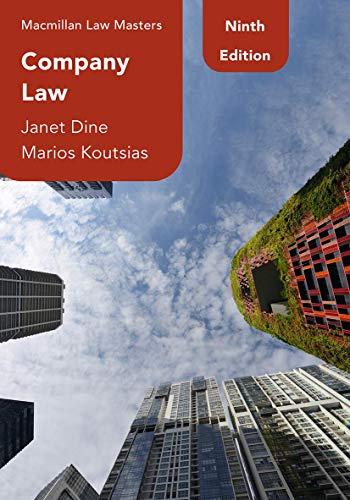Question
James Doe interviewed for a position with the Chicago Transit Authority (CTA). He interviewed at their offices and during a break in the interview process,
James Doe interviewed for a position with the Chicago Transit Authority (CTA). He interviewed at their offices and during a break in the interview process, he was introduced to and briefly talked with the person who, if he was hired, would be his supervisor, Jane Smith. The HR Manager overseeing the hiring process brought Doe to her office in the building and then left the room to check on the person who would be conducting the next formal interview. Before they left, Smith was introduced to Doe by the HR Manager who stated that it would be a good idea to meet during this break since Doe would be working for Smith, if he was hired.
As they talked, Smith indicated that she thought Doe would be a good fit in her department and offered Doe a salary of $79,500 to take the job. Smith told him that it was a good salary and he should take it without negotiating because her feelings would be hurt and she might take any negotiating into account when determining his yearly raises in the future. She said in a joking tone, but Doe believed that she meant what she said.
James was offered a position at the end of the interview process and immediately accepted the offer. Because of his earlier talk with Smith, Doe did not discuss the salary when the offer was made and he accepted it. Doe was merely told to return the following day to fill out the paperwork by the HR Manager as he left.
Under CTA's policies and procedures, only the Placement Department could actually give final salary offers. When Placement's figure for James's salary was computed, it was lower ($60,000), and this was the amount James was actually offered when he returned the next day to fill out the paperwork.
James sued to receive the higher salary offered by Smith. CTA claims that Smith had no authorityto offer a particular salary and that it is not bound by her offer.
a. Discuss the legal issues under these facts from both CTA's and Doe's perspectives. (In doing so, please be sure to address what authority is and why it matters in this situation. What do you think each party will say about Smith's actions?)
b. Who is likely to prevail if the case goes to trial? Why? (Is there any support for your position found in the cases referenced in the text? If so, be sure to discuss it)
c. Is there a way for CTA to honor Smith's offer after it found out about it? What is this called and how would it work?
Step by Step Solution
There are 3 Steps involved in it
Step: 1

Get Instant Access to Expert-Tailored Solutions
See step-by-step solutions with expert insights and AI powered tools for academic success
Step: 2

Step: 3

Ace Your Homework with AI
Get the answers you need in no time with our AI-driven, step-by-step assistance
Get Started


